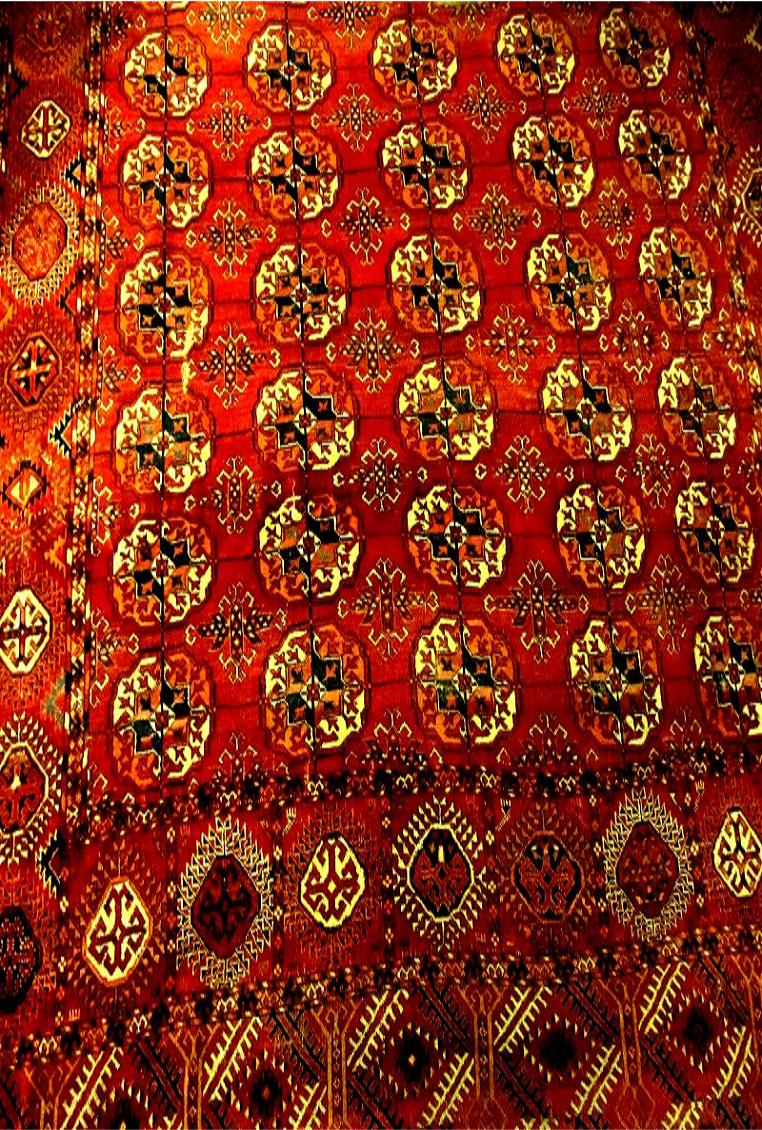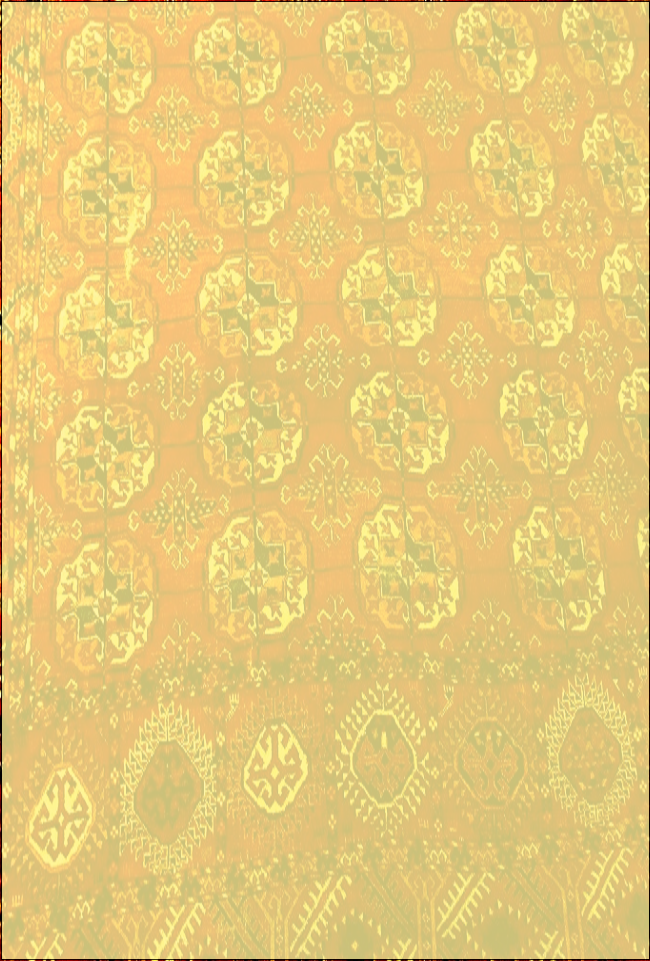Bukhara and Me
James M. Truxell
January 31, 2013
We are in a race of sorts,
Bukhara and me.
Our condition, roughly similar with
Significant, evident, worldly wear abounding now in each.
We note -- each hour, or week, or month, or year --
Depending on the falling feet of time,
Small threads of color leaving us, a
Fading slow, sure, painless.
Neither one cries out,
Bukhara and me.
Long together we have been,
Bukhara and me.
Scandalously older than that younger me,
She let me lay and play -- together watched the Brownian dust
Dervish-dance in angled shafts of morning light.
Entranced within the nameless Mystery,
One hand, upturned pulling heaven,
Toes touching peg upon the ground,
We learned love together,
Bukhara and me.
Worn parts lie low, rolled up,
Bukhara and me:
Hidden from the further strike of trodden souls that
Scuffed away the thick rich redness, underneath by now revealing
Weaver's warp and weft, no knots now knowing.
Still, some is left to cover floor, greet Dervish spin,
Footfalls of hope and pain . . . laughter even.
We wonder, awaiting, each of us together --
Recycling, future, resurrection.
Bukhara and me.
Author's Note: I'm a believer in the notion that a poem is "incomplete" until the reader/hearer supplies their own meanings that the poem evokes. That said, poetry is sometimes filled with metaphors and references that aren't widely known. It can help to know their meanings so that the author's intent can be inferred. "Bukhara" refers to a "Persian" rug woven by Turkmen women of the Ersari tribe in a region near Ashgabat ("City of Love"), the capital city of Turkmenistan. However, these carpets bear the name of the capital city of Uzbekistan, Bukhara, from which they were once exported. The well-worn, even thread-bare Bukhara carpet the poem alludes to is about 150 years old and has been in our family for generations. My earliest memory is being a three-year-old sitting on it. Currently, it is on the floor the office where I have my ministry as a pastoral counselor. The rug serves as a major metaphor in the chapter, "Magic Carpet Ride" in this site's free e- book Last Supper Red, available here for downloading.
The middle verse will perhaps make more sense if you know the following details. "Brownian" is a term from chemistry and physics. Named after its discoverer, Robert Brown, Browning motion describes the seemingly random movement of particles suspended in a liquid or gas.
The family of the 13th century poet Rumi travelled west along the Silk Road from his home in Afghanistan, fleeing the Mongol invaders, probably passing through the region near Ashgabat. They finally settled in Konya, Turkey where Rumi's teachings inspired his son to found the Sufi Muslim Mevlevi Order, famous for its "whirling dervishes." As an act of prayer, the dancers spin with one arm outstretched heavenward, the other pointing toward the ground. When the dancer is first learning the prayer-dance, his big and first toe straddles a peg in the floor to help him orient his body to just one spot while he spins. Rumi's poetry often makes use of the language of lovers in describing the relationship between the human seeker and the God that is found . . . a concept used in the Old Testament's Song of Songs.



